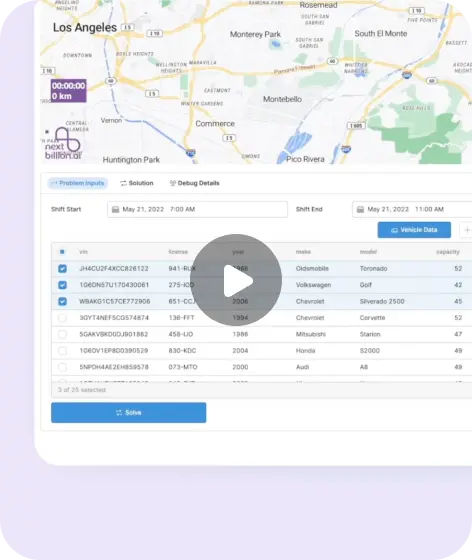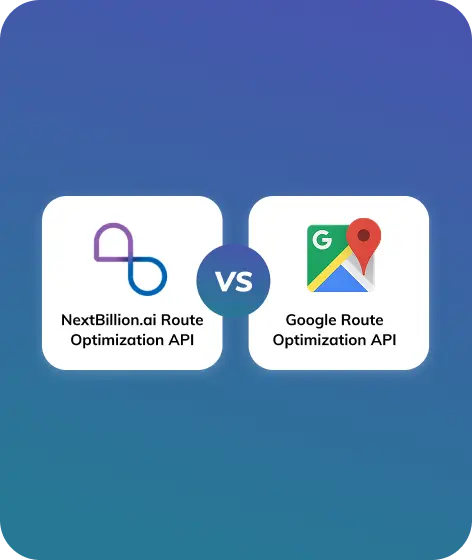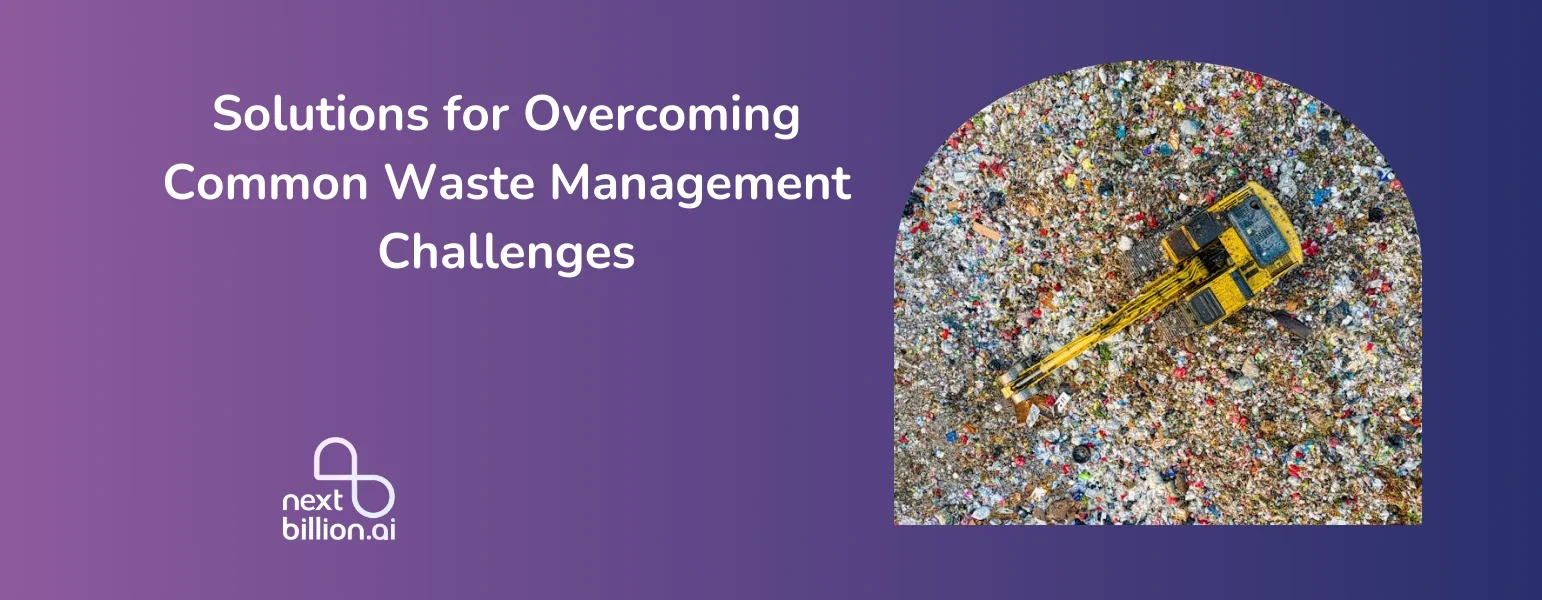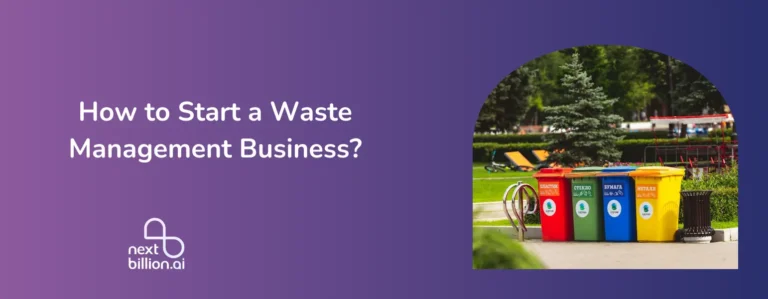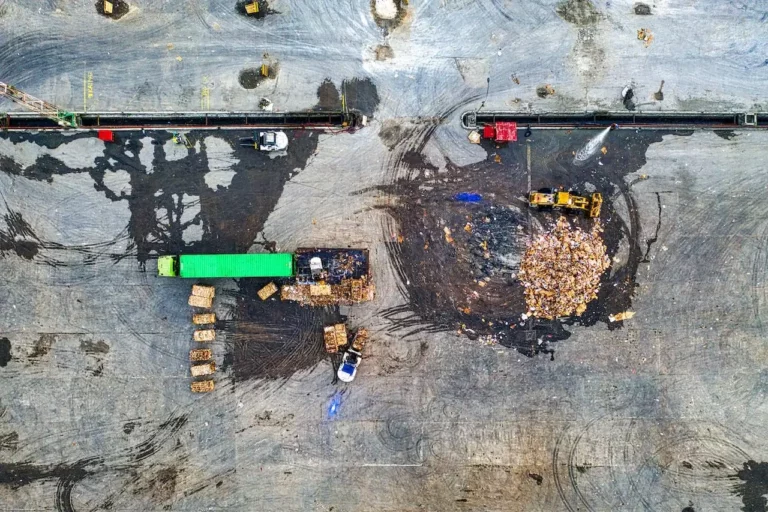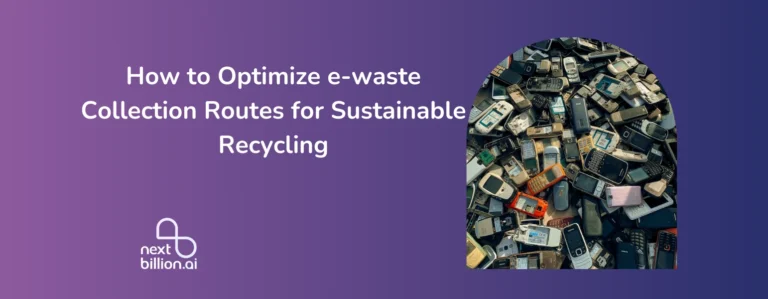
Table of Contents
Waste management is one of the most challenging issues of this century. As industrialization and urbanization continue to grow, the volume of waste generated is rising alarmingly. The latest World Bank study estimates a 70% global jump in urban solid waste, with developing nations facing the most significant waste management challenges. This article will focus on eight common waste management challenges businesses face and list solutions that can transform operations.

Rising Waste, Rising Stakes: The Collection Industry’s Challenge
Developing country towns, already dealing with growing populations, limited capacity, and scarce financial resources to manage environmental challenges, are facing a rise in the costs and amount of garbage they’ll be required to deal with in the coming two years. This growing waste volume is a wake-up call for the waste collection industry.
Mismanaged waste not only has environmental implications but also results in an economic burden on waste management firms and the government. Urbanization has accelerated this issue, with cities producing massive amounts of waste daily, necessitating efficient waste collection and processing systems.
Eight Waste Management Challenges to Solve
Improving waste management globally requires addressing several challenges, eight of which are listed here:
1. Waste Collection and Disposal Infrastructure
Waste management firms face problems stemming from outdated garbage collection and disposal infrastructure. Improper disposal practices and facilities, aging vehicles, and inefficient waste collection routes slow down operations and increase costs. Missed pickups could result in uncollected waste piling up in cities.
Advanced systems like NextBillion’s route optimization solutions can enhance collection efficiency by ensuring timely pickups, reducing route overlaps, and lowering fuel consumption. Businesses can make data-driven decisions to maintain or upgrade infrastructure strategically.
2. Financial Barriers
Limited finances have a considerable impact on waste management. In developing nations, the lack of financial resources obstructs proper waste management, resulting in low waste collection efficiency, poor planning, and inadequate funds allocation for sustainable waste management.
Municipal bodies and private firms often need help with budget constraints, limiting their investment in advanced waste management infrastructure and technologies.
However, investing in cost-effective technologies such as NextBillion’s route planning APIs can offer long-term savings. These APIs are suitable for margin-sensitive businesses that need advanced API constraints to solve large-scale and complex routing issues without making a massive investment.
3. Lack of Community Engagement
It’s not that the waste management industry lacks best practices. The measures are present, but businesses, individuals, and the government resist using them. The resistance results from socio-economic challenges, misinformation, and lack of awareness.
Individuals may want to keep their outdated waste disposal habits, believing that the existing methods are sufficient and no change is required. This mindset, not in my backyard, hinders progress and perpetuates harmful practices.
Companies may be afraid to invest additional funds in advanced waste management technologies. The estimated costs of new sustainable practices may obscure the long-term advantages of cost savings, efficiency, and corporate responsibility. Similarly, social and political challenges can hinder government initiatives to launch required reforms in waste management policies.
4. Inefficient Recycling Processes
Despite the growing awareness around waste composting and recycling, waste management firms need help to deploy effective waste management programs. Poor waste sorting infrastructure, contamination in recycling streams, and absence of customer participation all lead to poor recycling rates.
Most people brag that recycling is good for the environment. However, they have no answers when asked what must go into the recycling bin—this lack of knowledge results in non-recyclable materials like plastic bags and liquids entering the recycling stream. People don’t know what can’t be recycled, and as a result, they dump everything.
5. Climate Change
Another waste management challenge we face is the ever-changing climate. Climate has a linear impact on waste management activities. Unpredictable weather patterns, bad storms, and rising temperatures hinder waste collection schedules and can damage waste management infrastructure.
The timescale for climate change and the consequences of how we plan waste management are similar. For example, landfill sites have been operational for decades and can be active long after closure.
6. Lagging Technological Advances
The prevailing technologies in the waste management industry lack innovation and are usually not cost-effective, making it difficult for the government and companies to adopt them.
For example, the lack of efficient sorting and separating processes results in 70% of waste being poorly sorted. As a result, materials like plastics and aluminum make their way into landfills instead of becoming a part of the recycling stage.
Waste management technology has witnessed notable advancements, such as intelligent bins integrated with the IoT, and it’s high time companies started exploring and adopting these options.
7. Shifting Preferences of Consumer
Shifting customer preferences, especially the surge in e-commerce followed by online shopping, have resulted in a massive rise in packaging waste. This waste jump is largely due to the materials used for packaging and shipping, including one-time-use plastics such as shopping bags and water bottles.
Unfortunately, plastic products and packaging waste are not easy to recycle. They often find their way into landfills, where they contribute to environmental harm and the release of greenhouse gases. Adopting sustainable waste management processes is important to face this waste management challenge.
Governments can also create awareness programs and implement regulations to make consumers more conscious of waste management.
8. Confusing Regulations
The next issue on the list of waste management challenges is unclear regulations. The regulatory structure for waste management may not be the same for all regions. Also, this framework keeps changing, making it unclear for different people involved in waste management. Companies must look into the complex framework of local, national, and global regulations, which can result in compliance issues and legal risks.
Building a Better Waste Management System
To overcome these waste management challenges, companies must implement a multifaceted plan incorporating financial planning, public involvement, and technological innovation. Here are some strategies for dealing with waste management challenges:
1. Efficient Waste Processing System
Advanced waste collection and disposal systems can considerably improve waste management efficiency. Technology, such as vehicle tracking, optimizes collection routes and results in timely pick-ups. Waste management firms should get the latest tools and technology to improve collection methods and lower waste accumulation.
NextBillion.ai’s fleet management system ensures that vehicles arrive at processing centers on time, reducing delays and supporting seamless waste transfers.
2. Educate the Public
Spread public awareness and educate people about proper waste collection and disposal. Help them understand the importance of recycling and why it’s crucial in the waste management process.
Waste management companies can use NextBillion’s data analytics to evaluate the effectiveness of public awareness campaigns and track participation rates in all regions. This enables them to revisit and redefine their strategies for maximum impact.
3. Provide Incentives
Incentives can go a long way in promoting sustainable waste disposal practices. Rewarding composting or recycling can motivate companies and individuals to participate actively in waste management programs.
NextBillion.ai’s data-driven tools help companies implement and track incentive programs, giving insights into which strategies work for leading behavioral change.
4. Upgrade Recycling Infrastructure
Investing in recycling infrastructure is essential for reducing the waste that ends up in landfill sites. Recycling plants can manage a broader range of materials with state-of-the-art sorting and processing tools, improving the overall recycling rate.
NextBillion.ai’s real-time tracking features can help companies track the efficiency of their recycling facilities and make data-driven informed decisions to optimize operations.
5. Factor in Climate Changes
Waste management firms must consider the impact of climate change on their businesses. Building a resilient platform to withstand extreme weather events is vital for reducing disruptions and ensuring consistent service delivery.
NextBillion.ai’s dynamic route adjustment capabilities provide an effective solution by offering real-time weather-based rerouting, ensuring that waste is collected irrespective of weather conditions.
Environmental and Economic Implications
Poor waste management, from improper collection infrastructure to ineffective disposal, causes soil and water contamination and air pollution. Unsanitary and open landfills contribute to water contamination and can cause severe infection and spread diseases. The debris dispersal pollutes ecosystems, and harmful substances from industrial garbage or electronic waste pose a danger to the health of city dwellers and the environment. The implications of inefficient waste management on the environment and economy are far-reaching.
However, companies that embrace sustainable practices, supported by NextBillion’s technological solutions, can significantly reduce their environmental impact while improving their bottom line. Optimizing waste collection routes, reducing fuel consumption, and improving recycling rates contribute to long-term savings and a healthier planet.
Revolutionize Waste Collection and Disposal with NextBillion.ai’s Route Optimization
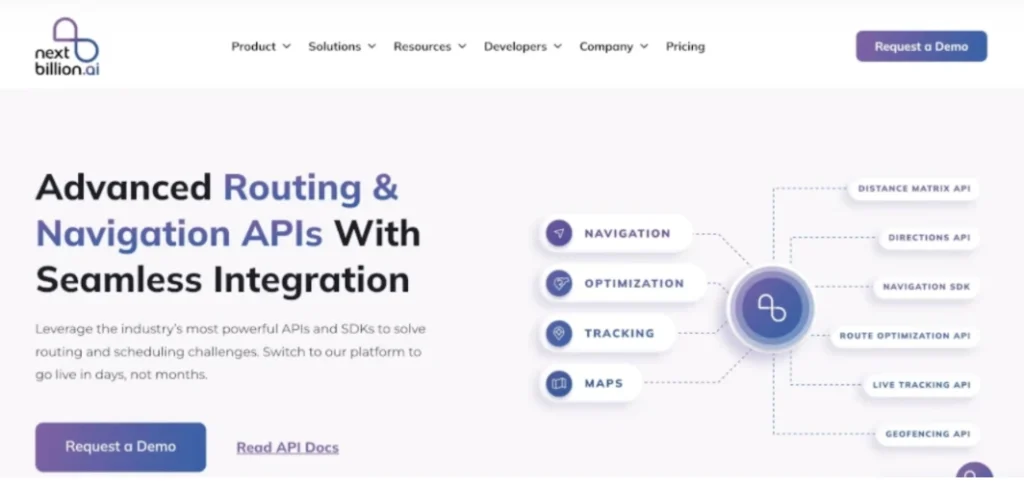
For waste management firms looking to achieve operational efficiency, NextBillion delivers cutting-edge technology. Route optimization helps businesses reduce operational costs and carbon footprints. NextBillion.ai’s AI-supported platform uses real-time data to create dynamic route adjustments so that waste collection vehicles take the best paths, lowering fuel consumption and unnecessary mileage.
With NextBillion.ai’s waste management solutions, companies can streamline their collection processes, making daily operations smoother and sustainable. This helps save on operational costs and increases productivity with timely waste pickups.
Real-time monitoring
NextBillion.ai’s real-time monitoring feature allows businesses to monitor driver performance, track their fleet, and meet compliance with environmental guidelines. By providing data-driven insights, the platform helps companies make more informed choices and achieve improvements in their waste collection and disposal systems.
Integration with other systems
NextBillion.ai’s platform can seamlessly integrate into other waste management operations without significant infrastructure changes. This enables firms to upgrade their waste management system without undergoing a complex or costly overhaul.
Conclusion
Waste management is an essential but challenging market that requires unique solutions to overcome existing complexities. From financial barriers and infrastructure problems and to changing climate and regulations, waste management companies face many hurdles in their daily businesses. However, by investing in advanced and cost-effective technologies like those developed by NextBillion, these companies can drastically enhance their efficiency, lower their environmental footprint, and reduce operational costs.
NextBillion.ai’s data-driven insights and route optimization offer waste management businesses the tools they require to thrive in a fast-changing world. Whether dealing with regulatory issues, lowering fuel consumption, or enhancing waste collection efficiency, NextBillion’s solutions comprehensively address some of the waste industry’s most heated problems.
As the waste management market grows, companies must use technological advancements to stay ahead of the competition. With the right advanced tools and strategies, overcoming waste management challenges becomes easy and provides an opportunity to build a more efficient and sustainable future.
Using NextBillion.ai’s platform, companies can revolutionize their waste management methods and ensure they are prepared for today’s challenges and future demands.
About Author
Rishabh Singh
Rishabh Singh is a Freelance Technical Writer at NextBillion.ai. He specializes in Programming, Data analytics and technical consulting, turning complex tech into clear and engaging content.


